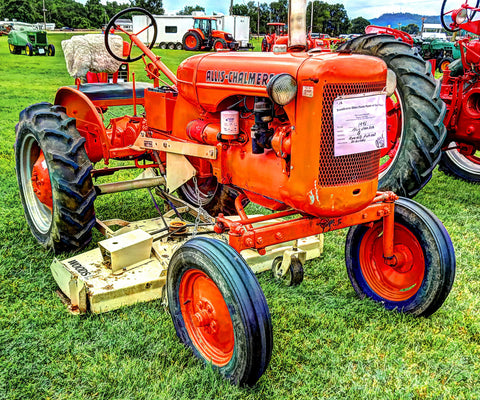
New to farming? Try starting with some broken-in equipment
The average age an American Farmer is 58, and that number is reportedly rising every year.
While Baby-Boomers at news outlets are keen to blame the dearth of young farmers on the shifting values of members of Generation X (or Millennials, for that matter), there are certainly other factors at play that make the agricultural sector a grey-haired one.
The costs of both land and new equipment are prohibitively expensive, and it can be hard to turn a profit in agriculture: especially in the first few years. Startup family farms have a tough time competing with established, multi-generation or factory-type operations.
For younger people looking to get into working the land, investing in reliable used farming equipment can leave a sorely-needed bit of wiggle room in a beginning budget.

Older equipment can be extremely reliable: anything that was manufactured before planned obsolescence became the standard in industrial design is likely to keep chugging along (much like how old flip-phones keep outlasting the newest iPhone models).
Beyond that, older machines are often a little more straightforward than some of the equipment coming out these days, which can contain bells and whistles like proprietary software: going too high-tech won’t translate into much of a fiscal benefit for a new, small operation.
When it comes to what machinery a new farmer should buy, that of course depends on the type of agriculture, the overall budget, plans for expansion, and regional differences in equipment availability.
There are certainly a few choices to be made: and many of them are more complex than choosing between gas or diesel.
Here are some good general rules for first-time buyers of used equipment:
1. Has the farm equipment you are buying been widely-used in your area?
For a new or young farmer, finding farm machinery that is familiar in the local area has a number of benefits. First of all, it’s more likely that there will be experts on how to operate, care for, and fix said machine in the area. Secondly, it means there will be a much larger market for spare or replacement parts if things end up breaking down.
So, before buying, suss out if you’re in New Holland or John Deere country, and try and get an idea of how common the equipment in question was when it came out, and how common it is now.
2. How much information is available on it?
Beyond local expertise, it’s also important to have documentation on how a machine functions: that’s what Ag Manuals is here for!
3. Does the model you are eyeing have a good reputation?
Farmers love to talk about what works and what doesn’t, so take advantage of the chatter. Check out consumer reports, local trade shows, meetings, horticultural and agricultural extensions, and web forums to see what the buzz is on a particular piece of machinery. In the long term, doing research beforehand can spare you the grief of making a bad investment.
(image taken by Don O'Brien - Flickr CC)
